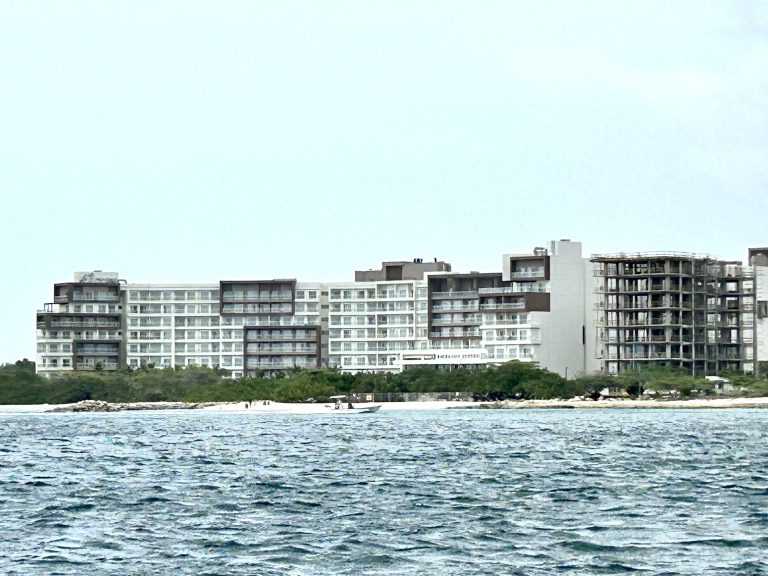The newest trust in (the global) town: the Curacao Trust
As of January 1st, 2012 the legal concept of trust has been codified and introduced in Curacao. As such Curacao is the latest civil code country to adapt the concept of trust in its legal system. With the National Ordinance Trust (“NOT”) other pieces of Curacao legislation, including the relevant tax laws, have been modified to allow for the (proper) insertion of the Curacao Trust in the legal system of Curacao.[1]
When lawyers anywhere in the world today speak of the trust they almost invariably think of the trust of English law, with its dichotomy of legal and equitable ownership, and its peculiar system of rules governing the relationship between trustee and beneficiary (cestui que trust) and the effect of their dispositive acts on third parties.[2] Who would have thought that a civil code country like Curacao would be talking (and writing) about trust?
The introduction
The introduction of the trust has been made through an amendment to Book 3 of the Civil Code of Curacao (“CCC”). Book 3 of the CCC codifies the legal concepts of the law of property, proprietary rights and proprietary rights of interests. The choice of the Curacao legislator to codify the trust in the civil code in the section of the law of property is similar to the introduction of the law of trust in Canada that was introduced in 1994. The law of trust in Canada was restated on January 1st, 1994. The restatement took place when the articles of the Civil Code of Lower Canada (“CCLC”) were replaced with provisions of the Civil Code of Quebec (“CCQ”).[3] The Quebec Trust is codified in Book 4 of the CCQ.
Formation Curacao Trust
The Curacao Trust is (and can only be) formed through a notarial deed of formation (“Trust Deed”), which is (has) to be executed by a civil law notary established in Curacao (“Notary”).[4] This can be done by the settler inter vivos or upon/after death. Following the formation the Notary is required to record the deed of formation with the Trade Registry of Curacao[5].
The Trust deed must at least include the following Trust particulars[6]:
– the allocation of one or more beneficiaries or (general) purpose;
– the appointment of one or more trustees, of which at least one is required to be a Curacao legal entity or natural person residing in Curacao;
– a provision to ensure that the Trust at all times must have a Curacao resident as a trustee;
– a description of the assets of the Trust;
– the word “trust” must be included in the name of the Trust.
Administration of a Curacao Trust
A Trust is administered by a Trustee. Powers of the trustee can be determined/tailor-made for each specific instance in the Trust Deed, provided that a trustee can’t assume the role of either beneficiary or protector. The trustee has a fiduciary obligation vis-à-vis the trust assets and must keep his/her/its assets apart from that of the trust at all times.[7] [8]
Types & purpose of Curacao Trust
The Curacao Trust is a legal relationship created between the settler and the trustee for the benefit of one or more beneficiaries for a specified purpose. Trust can be constituted for personal purposes or private or social utility. The assets of the trust are legally separated from the assets of the trustee.
Rights of beneficiaries of the Curacao Trust
A beneficiary can be a natural (unborn) person or a legal entity that has yet to be formed or incorporated, provided the beneficiary can be sufficiently defined. The beneficiary of a Trust can benefit from the fruits and capital of a Trust.
Protector
A Curacao Trust can – but is not required to – have one or more protectors. A protectors cannot at the same time be a trustee or a beneficiary. A protector cannot be appointed by the trustee.[9] Powers of the protectors can be determined/tailor-made for each specific instance in the Trust Deed. A protector can provide the trustee with (unsolicited) advice, oversee the duties and performance of the trustee and if need be to take actions against the trustee for the benefit of the trust/beneficiaries.
Termination of a Curacao Trust
A trust is terminated:
– with the expiration of a certain period of time or a certain condition listed in the Trust Deed;
– if the trust no longer has assets;
– if the trust no longer has beneficiaries;
– if the sole trustee becomes the beneficiary;
– through dissolution by the court of first instance of Curacao at the request of the prosecutor’s office.
Fiscal aspects of the Curacao Trust
Profit tax
The Curacao Trust is exempted from income and profit tax as long as it does not subject itself to the profit tax by undertaking a taxable activity such as engaging in enterprise.
Gift tax
Distribution of assets or gifts made by the Curacao Trust is not subject to gift taxes either. Contribution of assets to the Curacao Trust is subject to gift tax only if the donor is a resident of Curacao. If any contributions are made by non-residents these are tax-exempt in Curacao, however, gift tax may be – depending on the jurisdiction – due in the donor’s country of residence.
Capital gains tax
No capital gains tax is due on establishment of the Curacao Trust.
Succession Duty
Non-residents are not subject to succession duty in Curacao.
Withholding tax
The distributions of assets or funds to non-residents of Curacao beneficiaries are not subject to withholding tax.
[1] P.B. 2011, 67 is incorporated in Book 3 CCC
[2] H R Hahlo “The Trust In South African Law”, 2 Inter-American Law L. Rev. 229 (1960), republished in 78 SALJ 195 (1961)
[3] Stavert, William E., The Quebec Law of Trust, HeiOnline – 21 Est. Tr. & Pensions J. 130 2001-2002, p. 130
[4] Including a notarial testamentary disposition
[5] Section 3: 161 CCC
[6] Section 3: 130 CCC
[7] Section 3: 135 CCC
[8] Section 3: 137 CCC
[9] Section 3: 147 CCC













